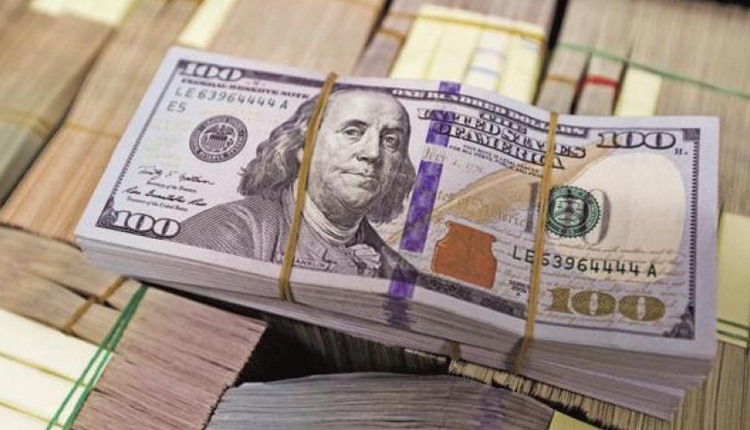The dollar edged lower against its peers on Wednesday, as rising expectations of a breakthrough in the trade impasse between United States and China led investors to put money into the euro and Asian currencies.
The euro gained 0.1 percent to $1.1334, while high-beta currencies such as the Aussie dollar and kiwi dollar each firmed 0.1 percent to $0.7102 and $0.6742, respectively.
“We seem to have moved away from dollar dominance over the last two sessions…this weakness is directly related to the improving risk sentiment around trade,” said Michael McCarthy, chief markets strategist at CMC Markets.
“The euro has bounced off an important support level and can extend its gains.”
Risk appetite was revived after U.S. President Donald Trump said on Tuesday that he could let the March 1 deadline for a trade agreement with China “slide for a little while,” but that he would prefer not to and expects to meet with Chinese President Xi Jinping to close the deal at some point.
U.S. tariffs on $200 billion worth of imports from China are scheduled to rise to 25 percent from 10 percent if the two sides cannot reach a deal by the deadline, increasing pain and costs in sectors from consumer electronics to agriculture.
The main focus for the markets are the high-level talks this week in China, where the world’s two largest economies attempt to hammer out a trade deal.
Financial markets have been rattled by the trade tensions over the past year, with business sentiment taking a hit globally as the fallout of the U.S.-China dispute disrupted factory activity and hurt global growth.
The dollar index, a gauge of its value versus six major peers, was marginally lower at 96.65 having lost 0.35 percent on Tuesday.
The dollar was flat versus the yen at 110.50.
Elsewhere, sterling was slightly higher in early Asian trade at $1.2896. Traders expect the British pound to remain volatile over the coming weeks.
The United Kingdom is on course to leave the European Union on March 29 without a deal unless Prime Minister Theresa May can persuade the bloc to amend the divorce deal she agreed last year.
Currency traders are also be focusing on the Reserve Bank of New Zealand’s interest rate decision on Wednesday. The RBNZ is widely expected to keep rates steady but may adopt a more dovish tone and cut forecasts, in line with other major central banks.
The dollar was marginally lower versus the Canadian dollar at C$1.3225, after weakening 0.5 percent in the previous session. The loonie has been supported by a rise in oil prices overnight due to improving risk appetite.
Source: Reuters
